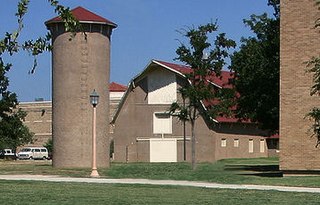A Bachelor of Education is an undergraduate academic degree which prepares students for work as a teacher in schools. A Bachelor of Education program typically lasts three to four years and combines both coursework and practical experience in educational settings. The curriculum is designed to provide foundational knowledge in pedagogy, educational psychology, teaching methodologies, and subject-specific training. Graduates of this program are equipped with the skills necessary to foster a supportive and effective learning environment for their students.

The General Educational Development (GED) tests are a group of four academic subject tests in the United States and Canada certifying academic knowledge equivalent to a high school diploma. This certification is an alternative to the U.S. high school diploma, as is HiSET. Passing the GED test gives those who do not complete high school, or who do not meet requirements for high school diploma, the opportunity to earn a Certificate of High School Equivalency or similarly titled credential. GED Testing Service is a joint venture of the American Council on Education, which started the GED program in 1942.

Secondary education is the last six or seven years of statutory formal education in the United States. It culminates with twelfth grade. Whether it begins with sixth grade or seventh grade varies by state and sometimes by school district.

The Florida Comprehensive Assessment Test, or the FCAT/FCAT 2.0, was the standardized test used in the primary and secondary public schools of Florida. First administered statewide in 1998, it replaced the State Student Assessment Test (SSAT) and the High School Competency Test (HSCT). As of the 2014-2015 school year FCAT was replaced in the state of Florida. The Florida Department of Education later implemented the Florida Standards Assessments (FSA) for English Language Arts, Reading, Mathematics and a Writing or typing test. A Comprehensive science test is still used for grades 5 and 8.
In New York State, Regents Examinations are statewide standardized examinations in core high school subjects. Students were required to pass these exams to earn a Regents Diploma. To graduate, students are required to have earned appropriate credits in a number of specific subjects by passing year-long or half-year courses, after which they must pass at least five examinations. For higher-achieving students, a Regents with Advanced designation and an Honors designation are also offered. There are also local diploma options.
The Massachusetts Comprehensive Assessment system, commonly abbreviated as MCAS, is Massachusetts's statewide standards-based assessment program developed in 1993 in response to the Massachusetts Education Reform Act of the same year. State and federal law mandates that all students who are enrolled in the tested grades and who are educated with Massachusetts public funds participate in MCAS testing.
A school leaving qualification is an academic qualification awarded for the completion of secondary education. Depending on the country or region, it may alternatively be known as a high school diploma, senior secondary leaving certificate, high schools general certificate or school certificate.

Agricultural education is the systematic and organized teaching, instruction and training available to students, farmers or individuals interested in the science, business and technology of agriculture as well as the management of land, environment and natural resources.

Homeschooling constitutes the education of about 3.4% of U.S. students as of 2012. The number of homeschoolers in the United States has increased significantly over the past few decades since the end of the 20th century. In the United States, the Supreme Court has ruled that parents have a fundamental right to direct the education of their children. The right to homeschool is not frequently questioned in court, but the amount of state regulation and help that can or should be expected continues to be subject to legal debate.
The California High School Exit Examination (CAHSEE) was an examination created by the California Department of Education, that was previously mandated to administer in high schools statewide in order to graduate. The examination was suspended in 2015, when Governor Jerry Brown signed a bill undoing the decade old requirement. It was originally created by the California Department of Education to improve the academic performance of California high school students, and especially of high school graduates, in the areas of reading, writing, and mathematics. In addition to other graduation requirements, public school students needed to pass the exam before they could receive a high school diploma.
The Minnesota Graduation Standards, also known as the Profile of Learning and the Minnesota Academic Standards, created in 1998, were intended to raise standards of education for Minnesota high school students. The Minnesota Graduation Standards were developed to ensure minimum competence in survival skills for all Minnesota graduates from high school. The standards included two parts: the Minnesota Statewide Assessments and the Minnesota Academic Standards.
An exit examination is a test that students must pass to receive a diploma and graduate from school. Such examinations have been used in a variety of countries; this article focuses on their use within the United States. These are usually criterion-referenced tests which were implemented as part of a comprehensive standards-based education reform program which sets into place new standards intended to increase the learning of all students.

International Polytechnic High School, commonly referred to as iPoly, is a public college-preparatory demonstration high school (9-12) found in the California State Polytechnic University, Pomona campus and operated by the Los Angeles County Office of Education (LACOE) in collaboration with the College of Education and Integrative Studies at the university. iPoly's curriculum is fully accredited by the Western Association of Schools and Colleges and is approved by the University of California and California State University. It runs hand-in-hand with the Los Angeles County High School for the Arts (LACHSA), which is also run by LACOE. Since iPoly is not a part of fixed school district, it draws students from all over Los Angeles, San Bernardino, Orange and Riverside counties. Most of the students come from the Pomona and San Gabriel valleys. In 2009, 2013, and 2019, iPoly was honored as a California Distinguished School by the California Department of Education.
Education reform in the United States since the 1980s has been largely driven by the setting of academic standards for what students should know and be able to do. These standards can then be used to guide all other system components. The SBE reform movement calls for clear, measurable standards for all school students. Rather than norm-referenced rankings, a standards-based system measures each student against the concrete standard. Curriculum, assessments, and professional development are aligned to the standards.

Roberts High School is a high school in Salem, Oregon, United States. It provides non-traditional educational programs in the Salem-Keizer School District. Rather than a centralized campus, Roberts High School consists of departments at different sites in Salem and Keizer. These branch sites include the Downtown Learning Center, Structured Learning Center, Bridge, and Internet-based SK Online. In the 2006-2007 school year, over 1,000 students were enrolled in Roberts High School.
A culminating project, is a project that challenges high school seniors to demonstrate their academic knowledge in an experiential way. According to the United States Department of Education, State Education Boards typically allow individual school districts to customize the project, based on basic state guidelines.
The Rhode Island Department of Education (RIDE) is a state agency in Rhode Island that oversees the elementary and secondary education system from pre-Kindergarten through twelfth grade. It is headquartered in Providence. RIDE works closely with the Rhode Island Office of the Postsecondary Commissioner (RIOPC), the agency charged with overseeing higher education. Together, RIDE and RIOPC aim to provide an aligned, cohesive, and comprehensive education for all students.
Armadillo Community Charter School (ACCS), formerly known as Armadillo Technical Institute (ATI), is a small public charter school in Phoenix, Oregon, United States. It enrolled 110 students in grades 9–12 and provides a GED preparation program as of 2020. The current director is Rachel Garner.
A high school diploma or high school degree is a diploma awarded upon graduation of high school. A high school diploma is awarded after completion of courses of studies lasting four years, typically from grade 9 to grade 12. It is the school leaving qualification in the United States and Canada.
Education in British Columbia comprises public and private primary and secondary schools throughout the province. Like most other provinces in Canada, education is compulsory from ages 6–16, although the vast majority of students remain in school until they graduate from high school at the age of 18. In 2020, 86% of students in British Columbia graduated from high school within six years of entering grade 8. It is also common for children to attend kindergarten at the age of 5, it is increasingly common for even younger children to attend pre-school or early learning programs before their formal school age years.






